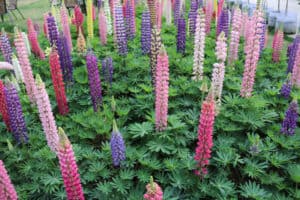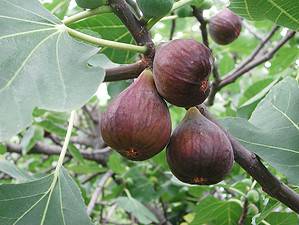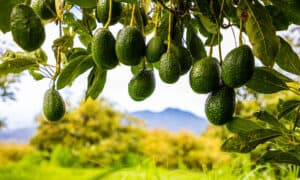Who says it’s too cold to grow plants in January? There are quite a few plants that are perfect to start indoors with grow lights, warming pads, or by the window. Of course, though, every environment is different. Follow along to discover the 16 best plants to start indoors in January.
Leeks
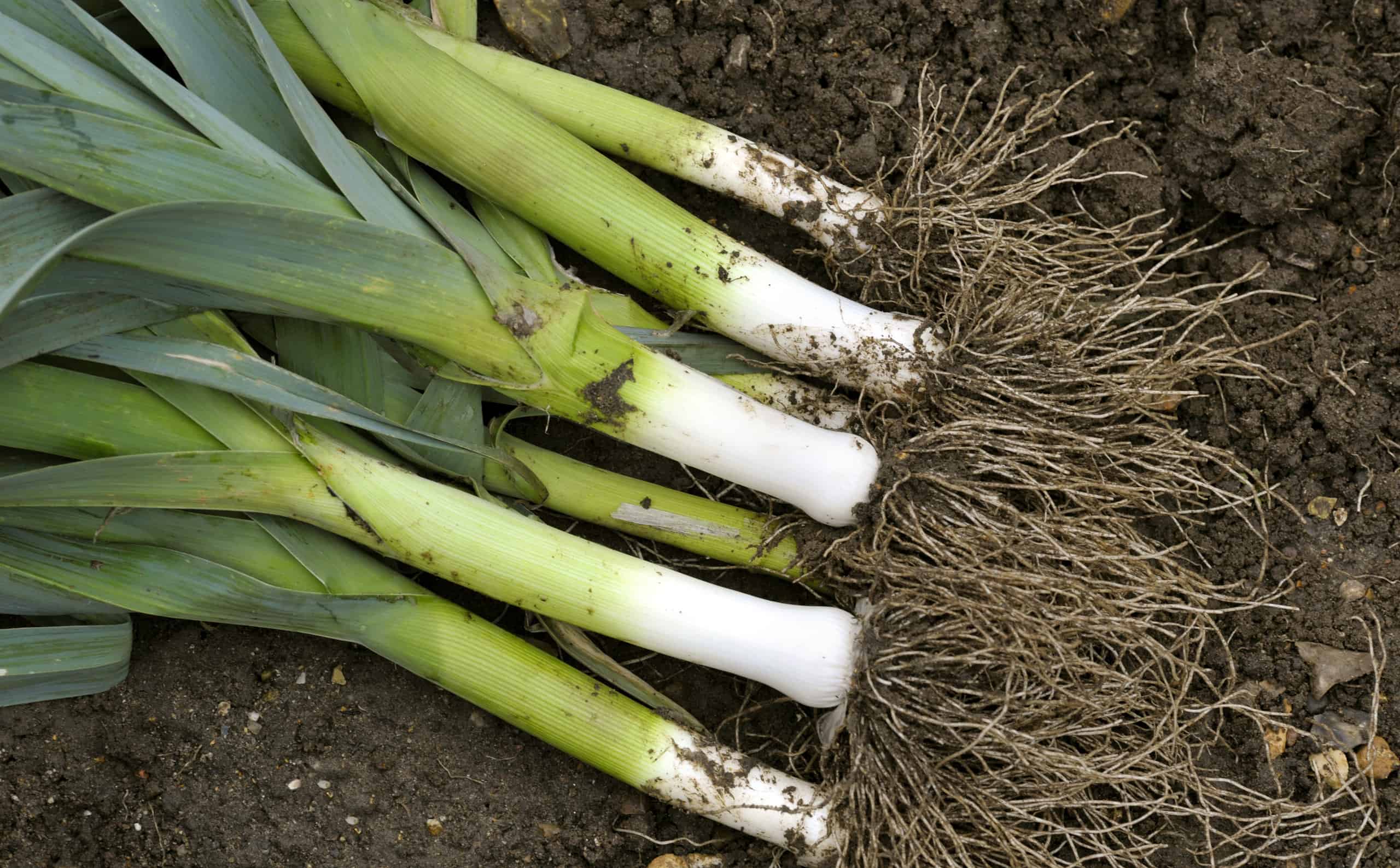
Leek seeds can take over two weeks to germinate.
©Graham Corney/Shutterstock.com
The first plant on our list is the leek. Leeks are refreshing edible plants with a thick white stem and long green leaves. Leeks belong to the same genus as onions, garlic, chives, and scallions. They are also an old good, cultivated since the time of the Ancient Egyptians and in Ancient Rome.
Leeks grow well in containers. It’s best, though, to start your leeks in a large container as they can be difficult to transplant. Leek seeds take about 8 to 16 days.
Lettuces
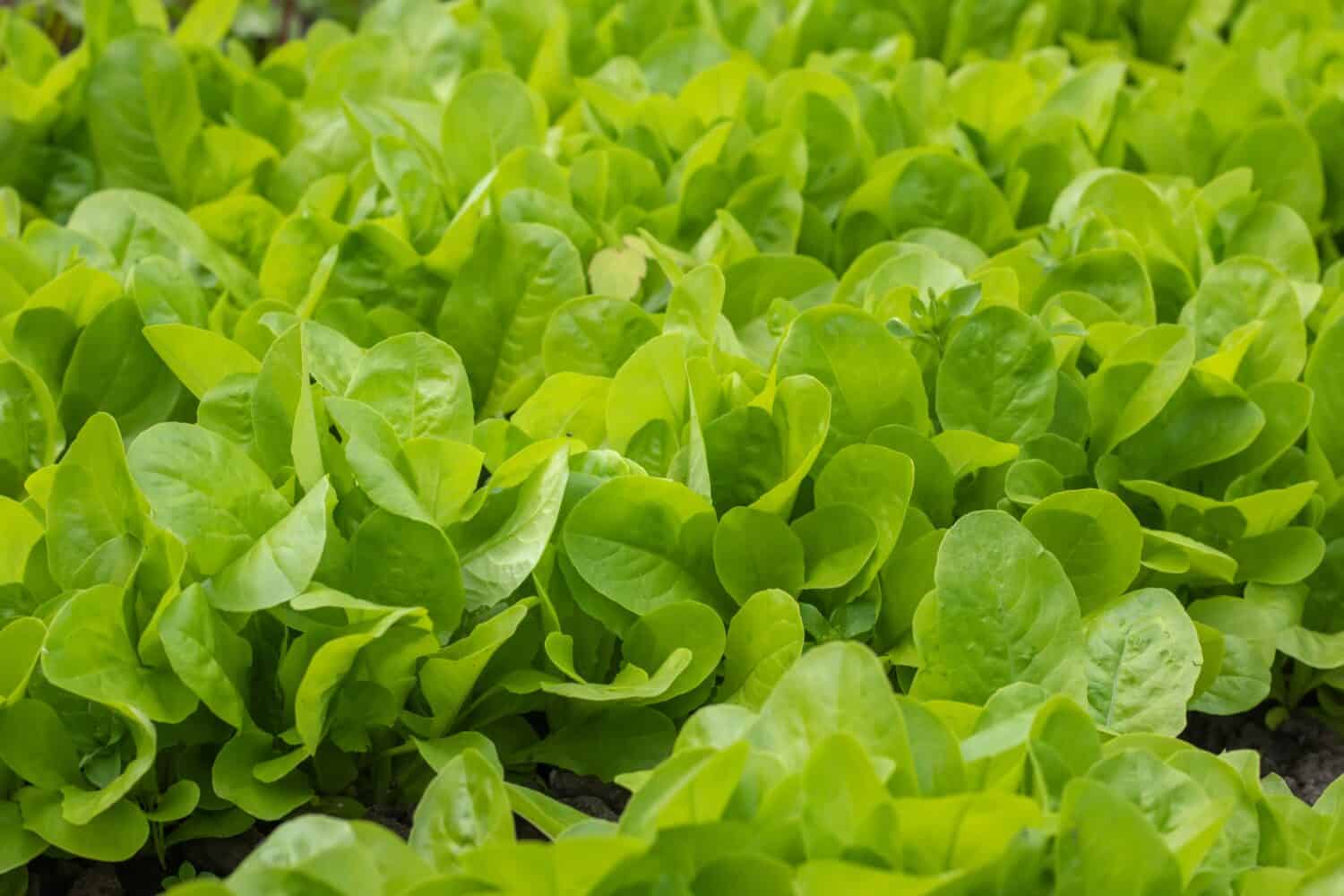
Lettuce seeds can take 1 to 2 weeks to germinate.
©Skrypnykov Dmytro/Shutterstock.com
Technically, if you have the right indoor setup, you can easily grow lettuce indoors, no matter the season or hardiness zone. You can either start seeds in small seed trays, large containers, or in a hydroponics system. The seeds are small but vary depending on the variety and type. Lettuce seeds germinate in 1 to 2 weeks when the soil temperature is around 70°F. Lettuces are cold-weather plants.
Broccoli
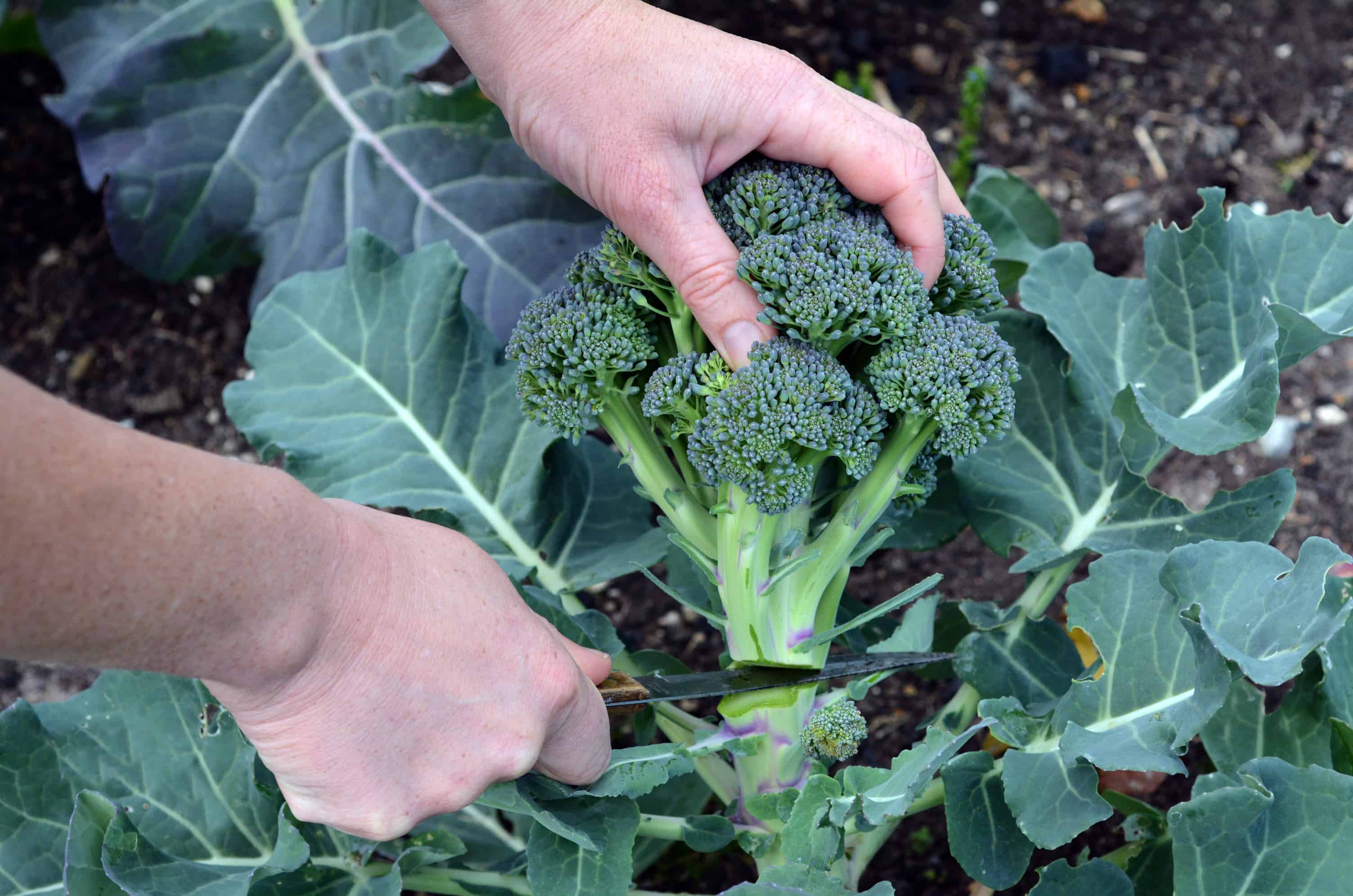
Broccoli seeds germinate quicker in warm soil.
©ChameleonsEye/Shutterstock.com
Next on our list of the 16 best plants to start indoors in January is broccoli. The best time to plant this delicious green plant depends on when you want to harvest the broccoli. Still, if you are growing indoors, you can start broccoli seeds indoors. The seeds take between 7 to 10 days to sprout. They need very bright light as seedlings, so you may need to use grow lights.
Eggplants
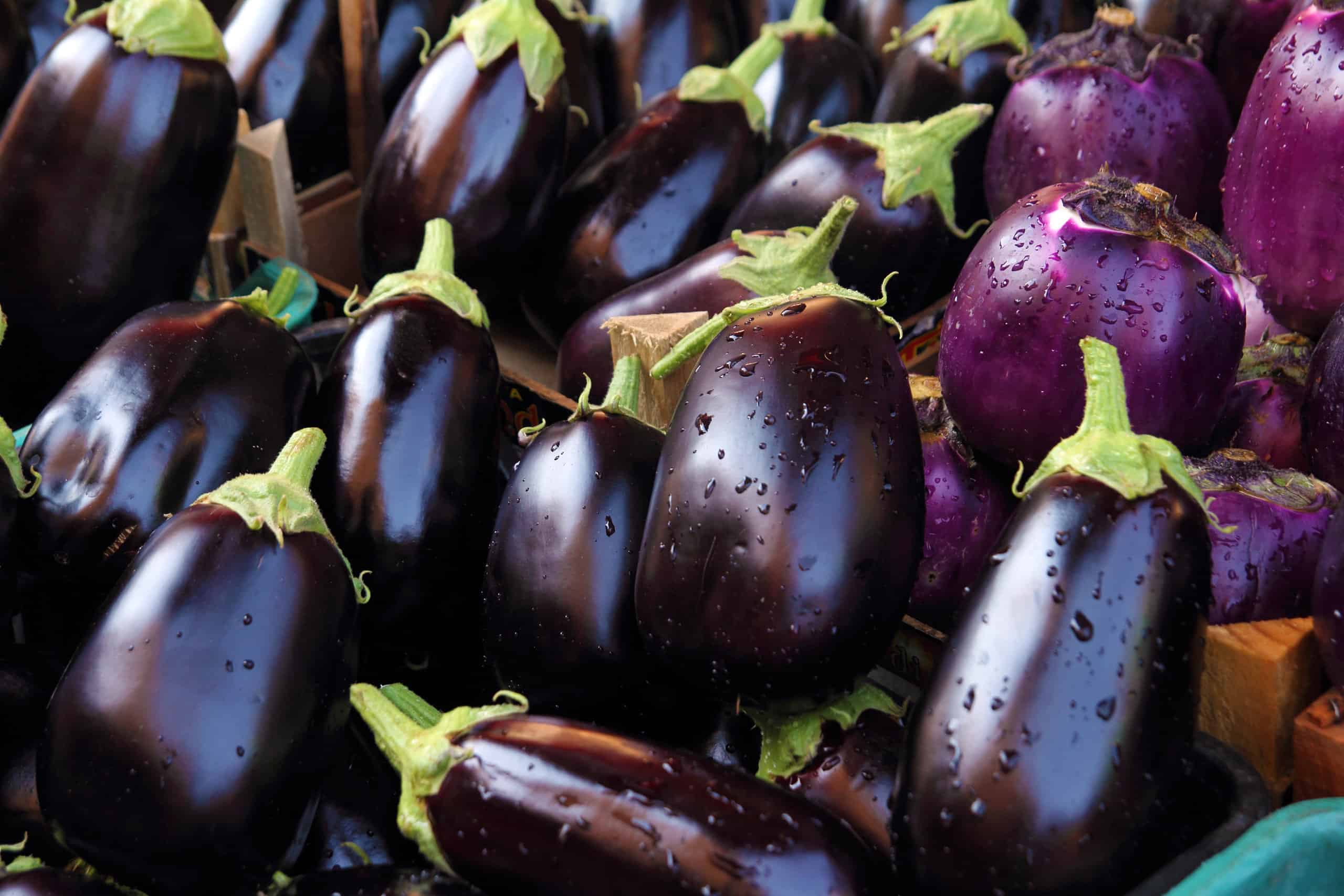
It can take up to two weeks for eggplant seeds to germinate.
©iStock.com/nevarpp
Eggplants can also be started indoors in January. The timing depends on how you’re going to grow your eggplant. For instance, for those who want to grow it indoors, the timing doesn’t matter. However, if you’re transplanting the plant outdoors, you’ll need to start seeds 8 to 10 weeks before your last frost date. This varies by state. For instance, the University of Florida recommends starting eggplant seeds between January and February for Central Florida residents.
Cilantro
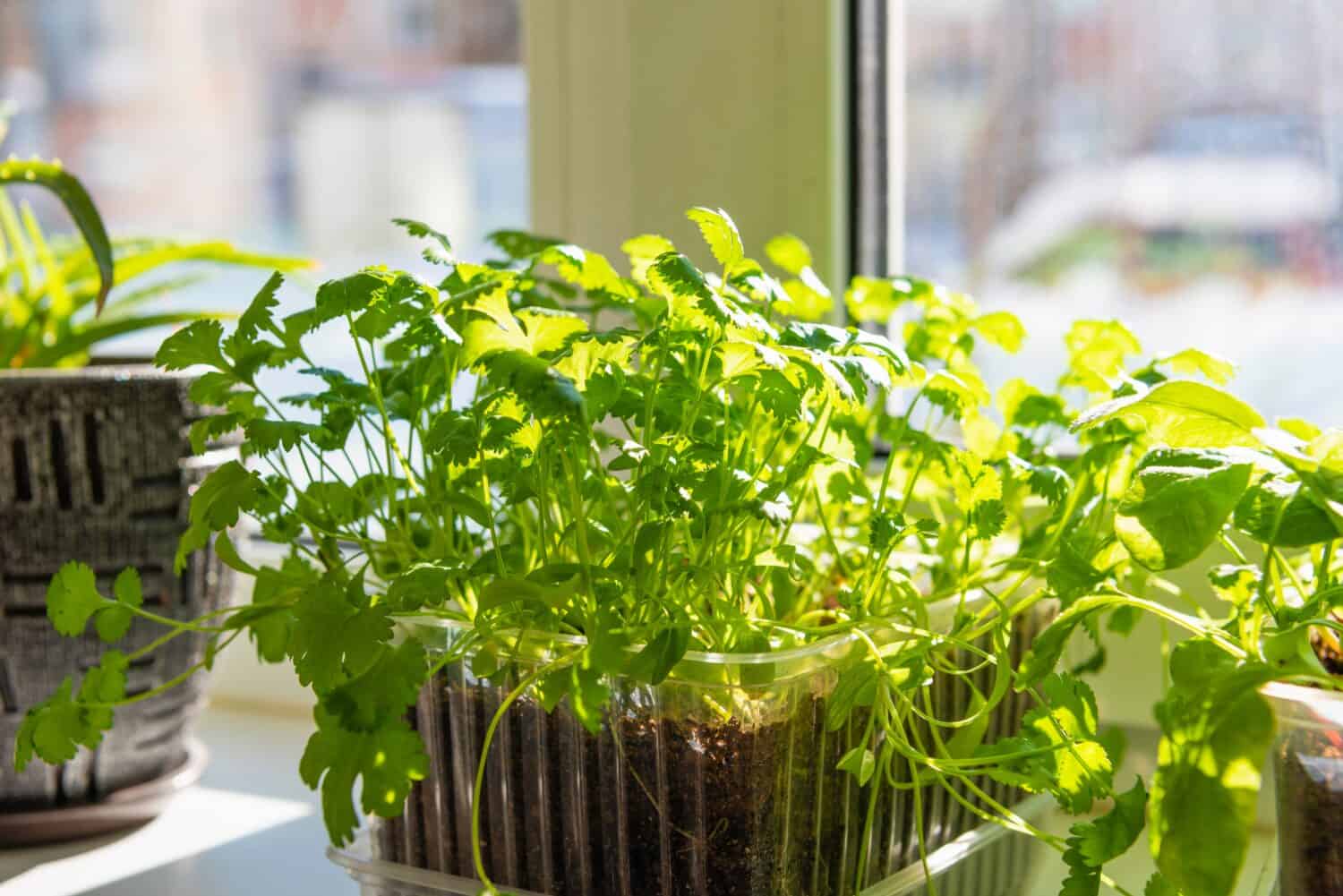
It takes around three weeks for cilantro seeds to germinate.
©Valeriia Duggan/Shutterstock.com
Cilantro seeds are easy to start indoors. You can also stick to growing cilantro plants inside, either by a window or with grow lights. Cilantro seeds germinate in about 3 weeks. The soil needs to be between 55 to 68°F.
Jalapeno Peppers
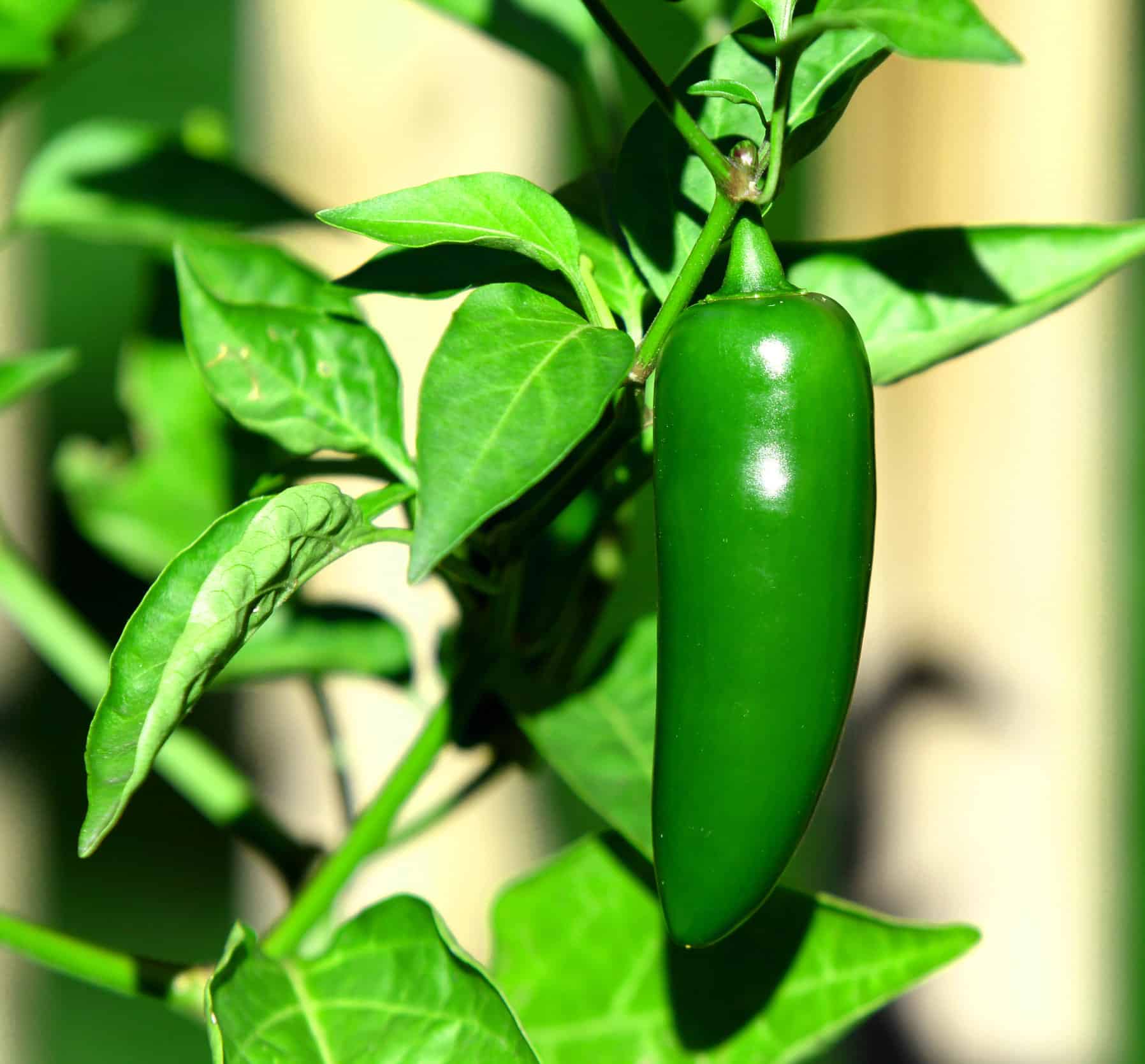
To grow jalapenos, your soil needs to be at least 80°F.
©iStock.com/Victor Ward
Jalapeno peppers are a favorite for many. They are a lot of fun to grow. Not all jalapenos, though, thrive when you plant them in January; always check your seeds for the variety. Some early blooming jalapenos can be started indoors in January or February. The seeds take 1 to 2 weeks to germinate, and the soil needs to be warm, at least 80°F. This can be hard indoors. If you need to, you can use grow lights or greenhouse covers for the seeds to germinate and sprout.
Asparagus
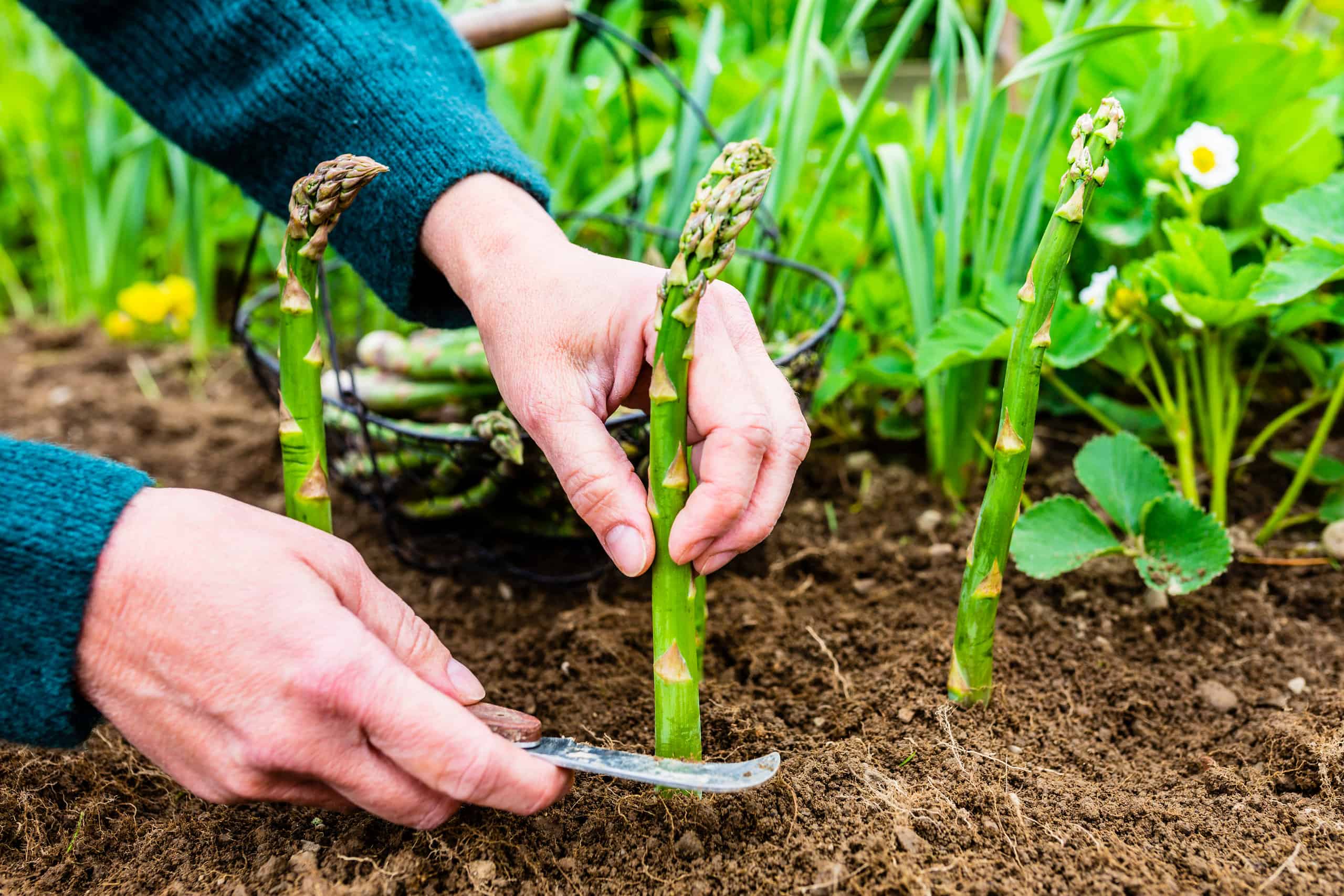
Asparagus plants may last 15 years.
©iMarzi/Shutterstock.com
Another great plant to start indoors in January is asparagus. This plant grows well in spring and fall but can be started in mid to late winter. Fun fact, according to the University of Minnesota, one mature asparagus plant may last 15 years. You can start the seeds indoors, but it’s best to transplant them outside after the danger of frost has passed.
Basil
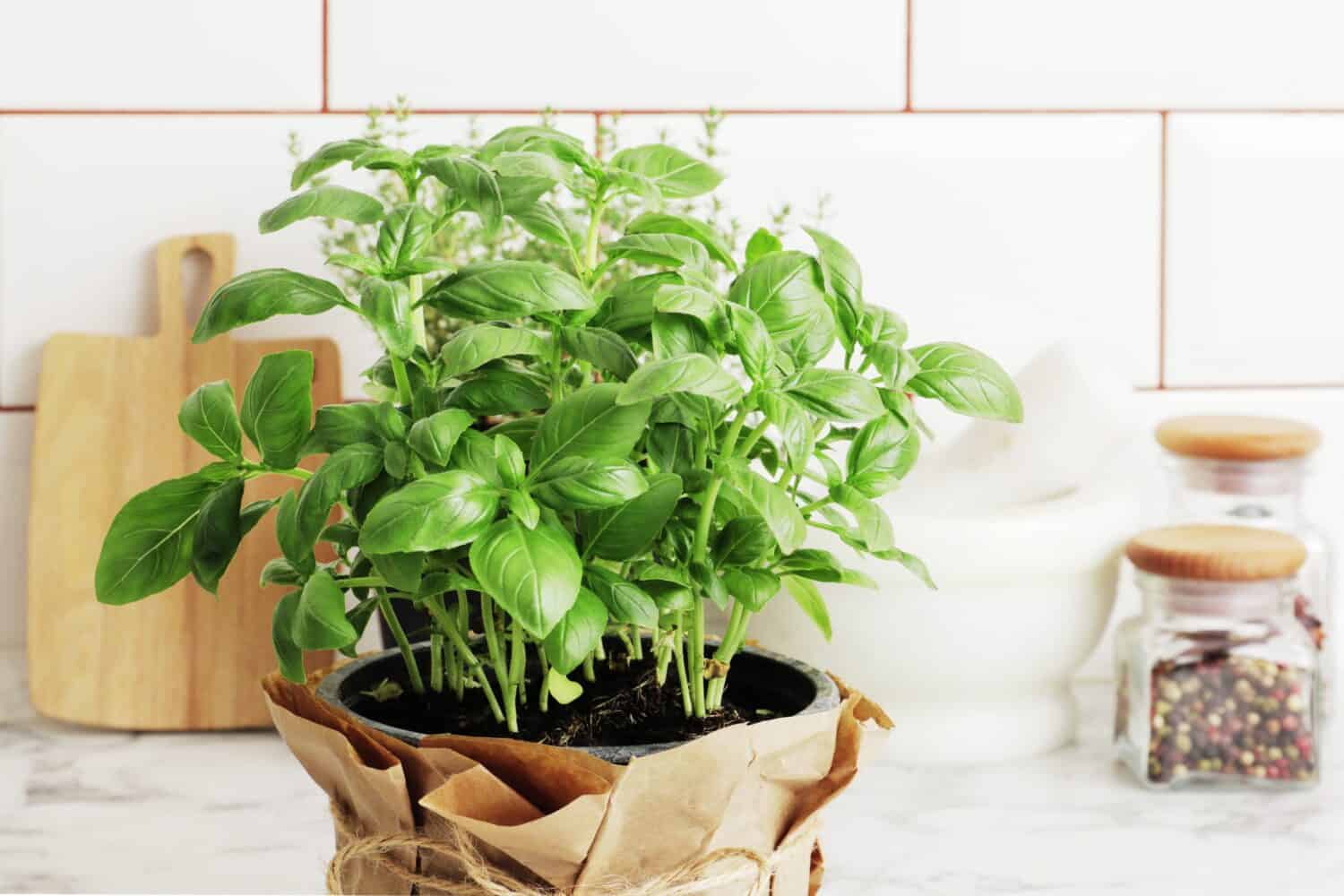
Basil seeds take up to two weeks to sprout.
©PandaStudio/Shutterstock.com
Herbs are some of the easiest plants to grow indoors, including basil. Basil seeds germinate in temperatures of around 70 to 85°F. They take about 10 to 14 days to sprout. As long as you can keep the soil temperature consistently warm, you can grow basil indoors!
Mint
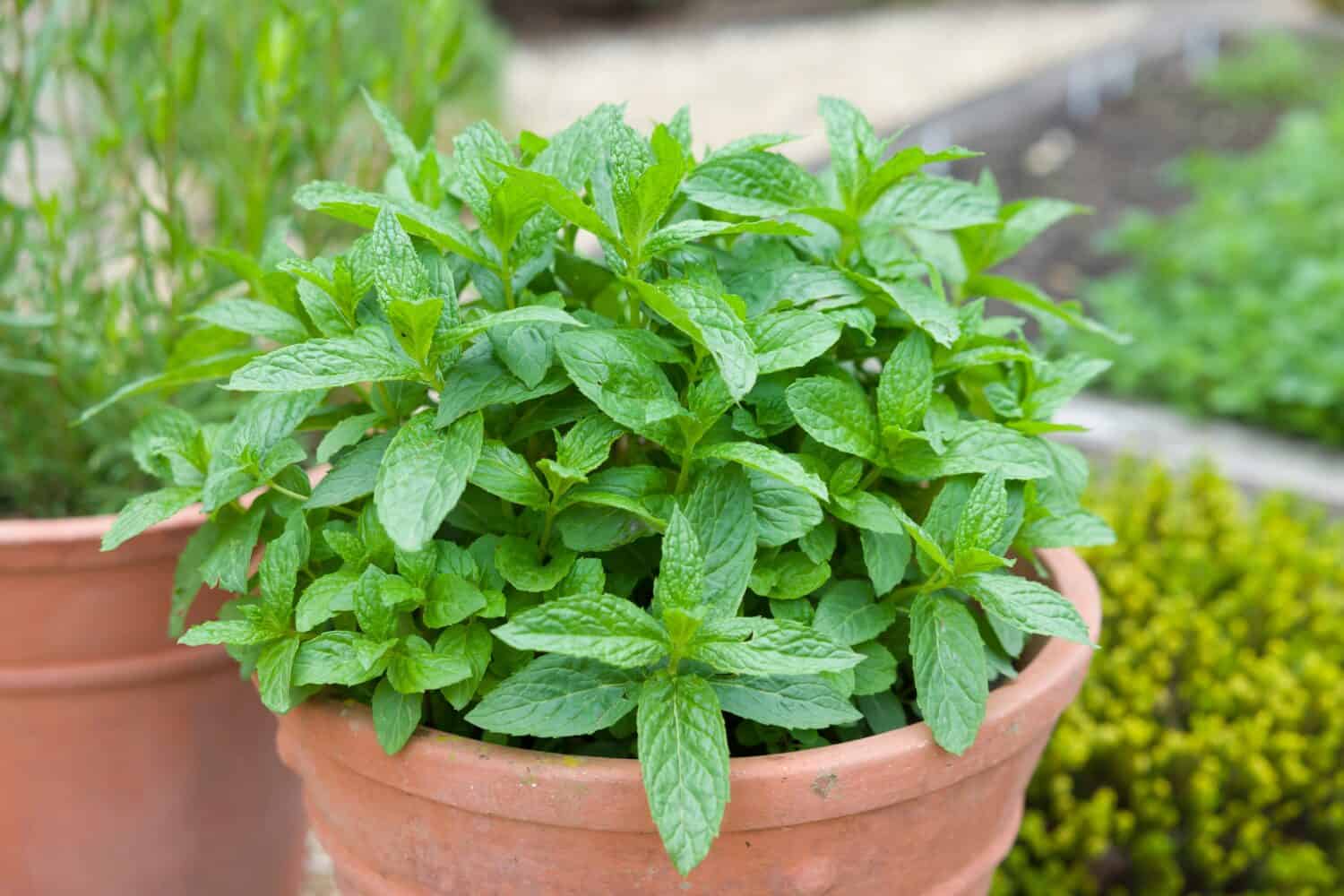
It’s easy to grow mint indoors. Mint are great container plants.
©Paul Maguire/Shutterstock.com
Mint, like basil, is easy to grow indoors. It’s best to choose a window that receives enough light and doesn’t have any holes. Mint plants, though, are tricky. As seedlings, too much sunlight can burn the leaves or worse, kill the plant. Mint plants need warm soil of around 70°F to germinate and grow. Mint seeds may take up to 14 days to germinate.
Swiss Chard
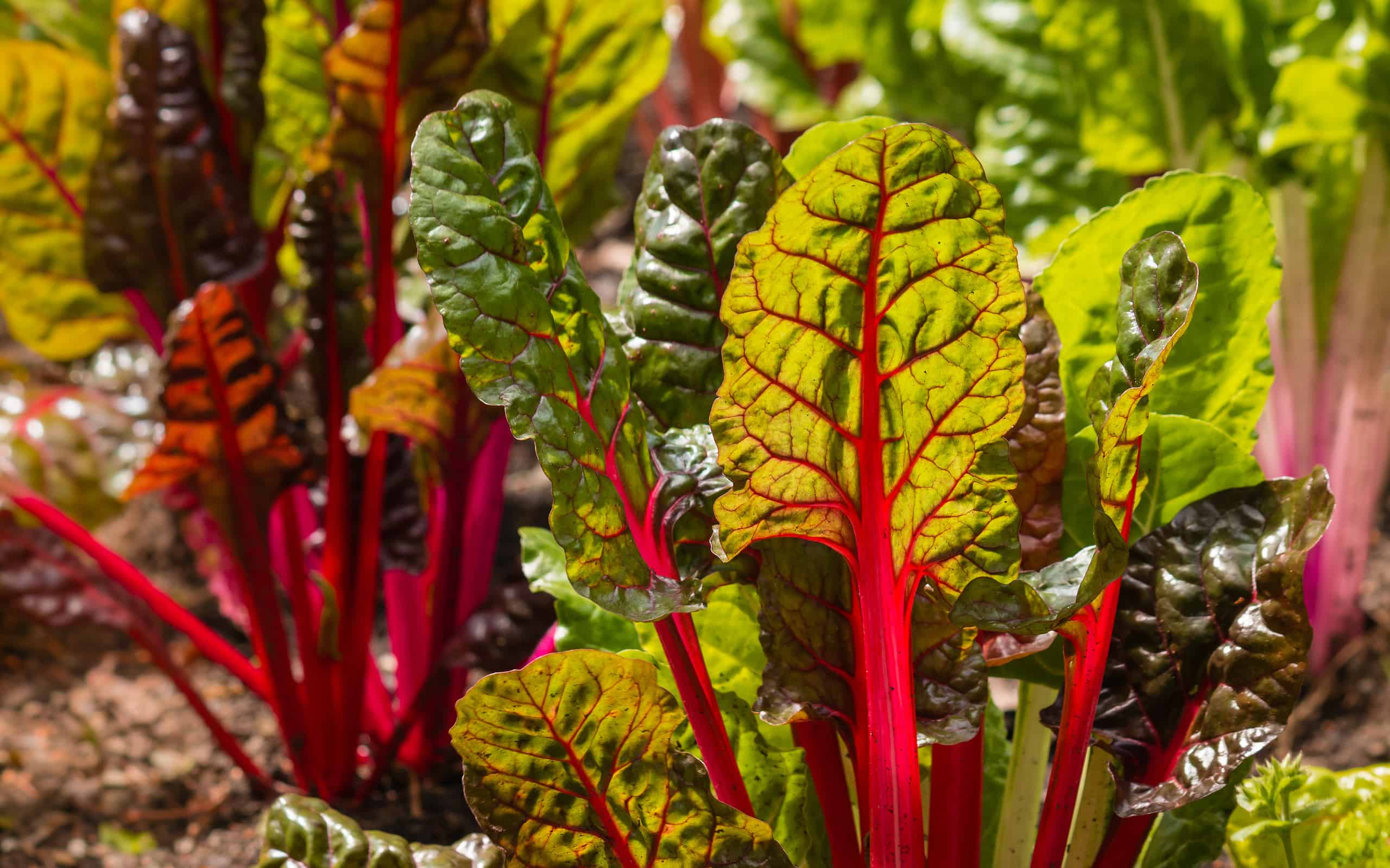
Swiss chard seeds germinate in 1 to 2 weeks.
©PatrikStedrak/iStock / Getty Images Plus via Getty Images
Also on our list of the 16 best plants to start indoors in January is Swiss chard. This colorful plant is usually a spring or fall crop but may grow year-round depending on your climate. Swiss chard seeds germinate in 7 to 14 days. The temperature of the soil needs to be around 55 to 75°F. They may even germinate at temperatures as low as 40°F. Swiss chard grows really well in hydroponics systems.
Poppies
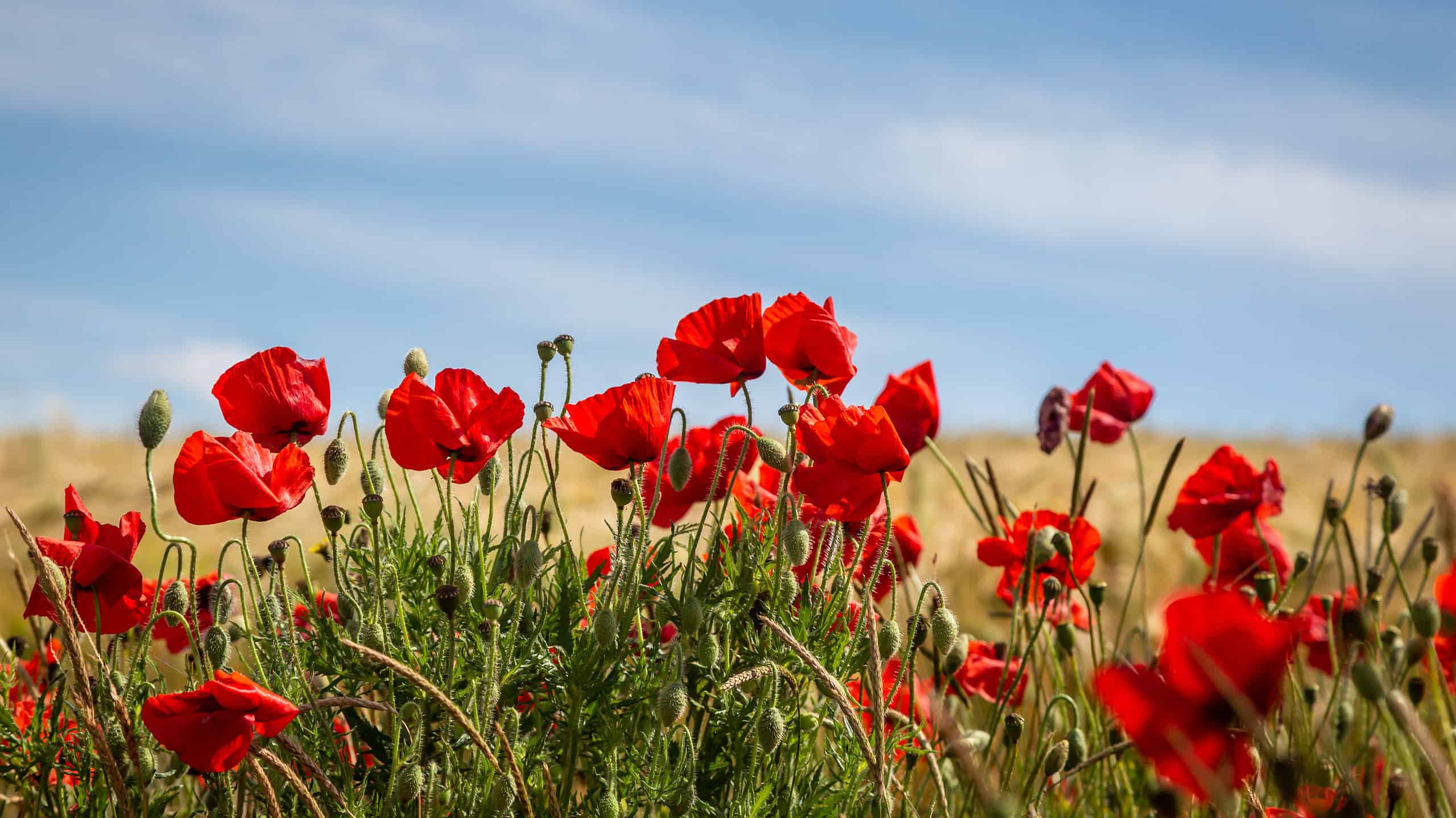
Flowers hold a lot of meaning. Poppies can symbolize
©iStock.com/Lemanieh
Poppy seeds are great to start indoors. While some poppy varieties grow in winter, they are usually grown in spring and fall. When starting poppy seeds indoors, it’s best to wait until 4 to 6 weeks before the last frost. Poppy seeds take anywhere from one to four weeks to germinate. They need a soil temperature of at least 55°F to grow.
Spinach
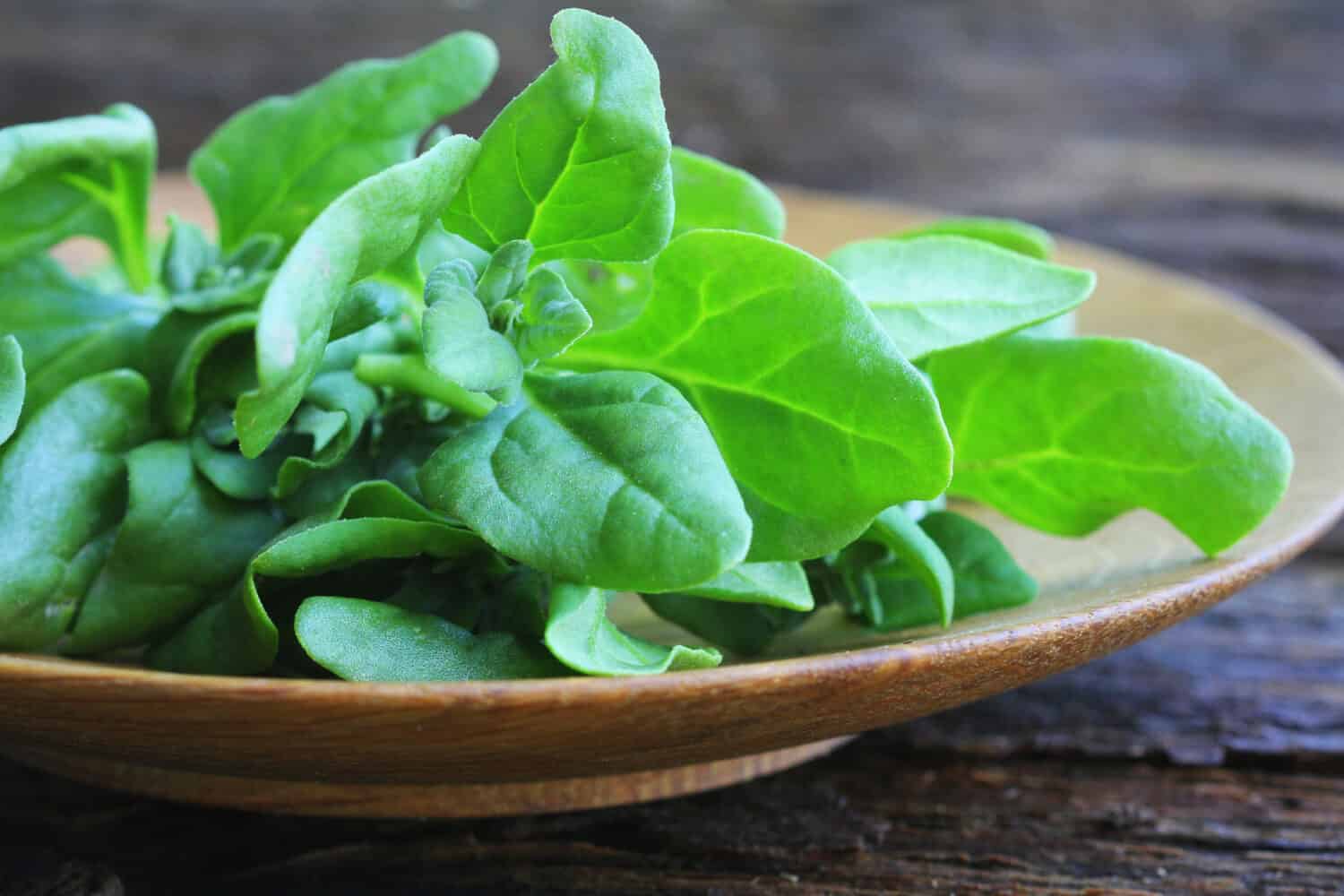
Spinach seeds can sprout in as little as five days.
©vaivirga/Shutterstock.com
Like lettuce, spinach grows really well inside, especially in hydroponics systems. Unlike other plants on our list, spinach is a cool-weather plant that can’t stand warm temperatures. If you place your spinach seedlings or plant in bright, direct light, it may bolt, producing seeds, which change the flavor of the leaves. Spinach seeds germinate quickly. They may sprout in as little as 5 days.
Kale
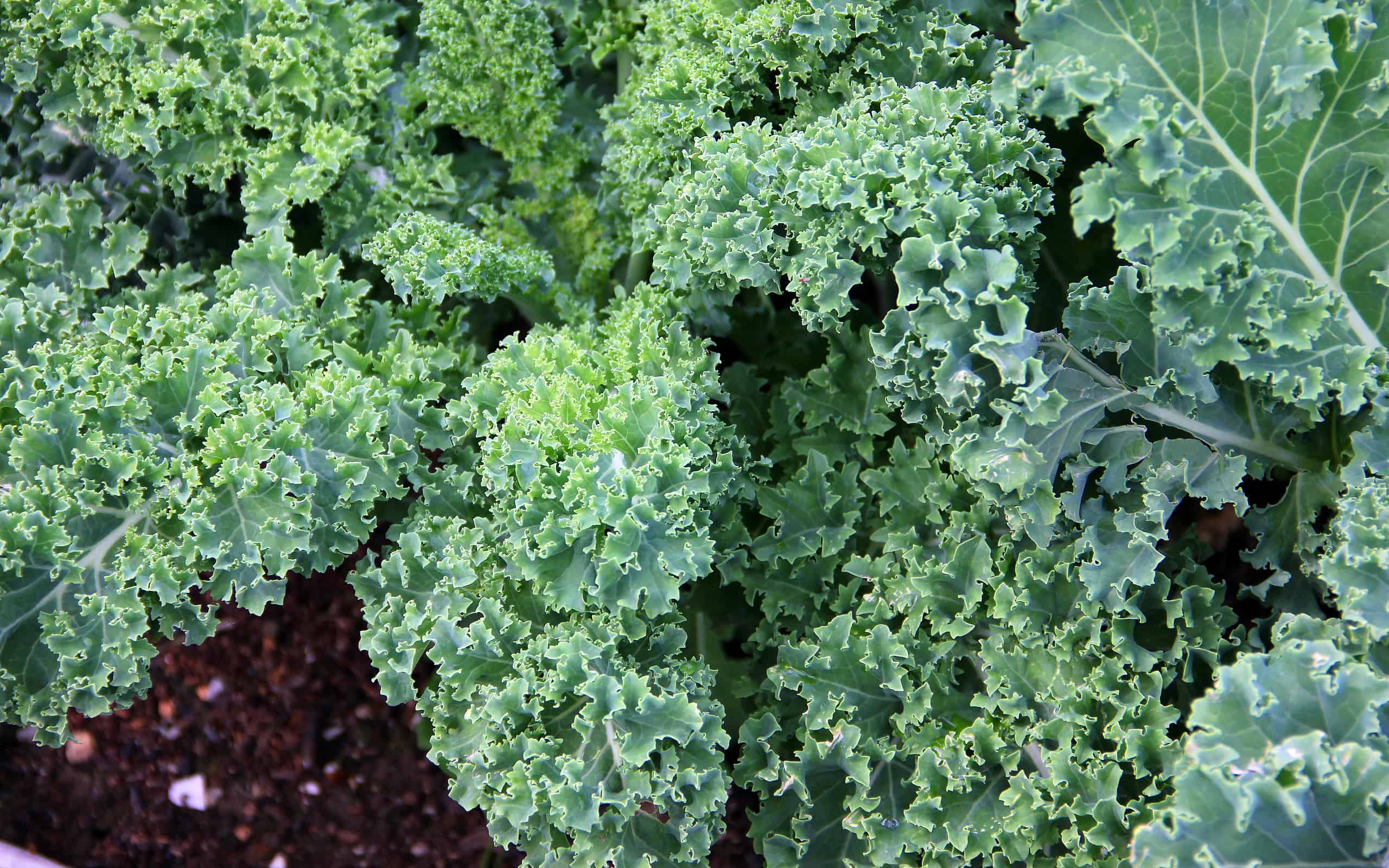
Kale seeds may sprout it as little as four days.
©/ via Getty Images
Another leafy green makes our list: kale. Kale is a very nutritious plant. This superfood contains vitamins and minerals like fiber, Vitamin C, Vitamin K, manganese, and calcium. You can quickly harvest kale as it only takes around 55 days to harvest from seeds. Seeds germinate in as little as 4 days or as long as two weeks depending on the temperature of the soil.
Rosemary
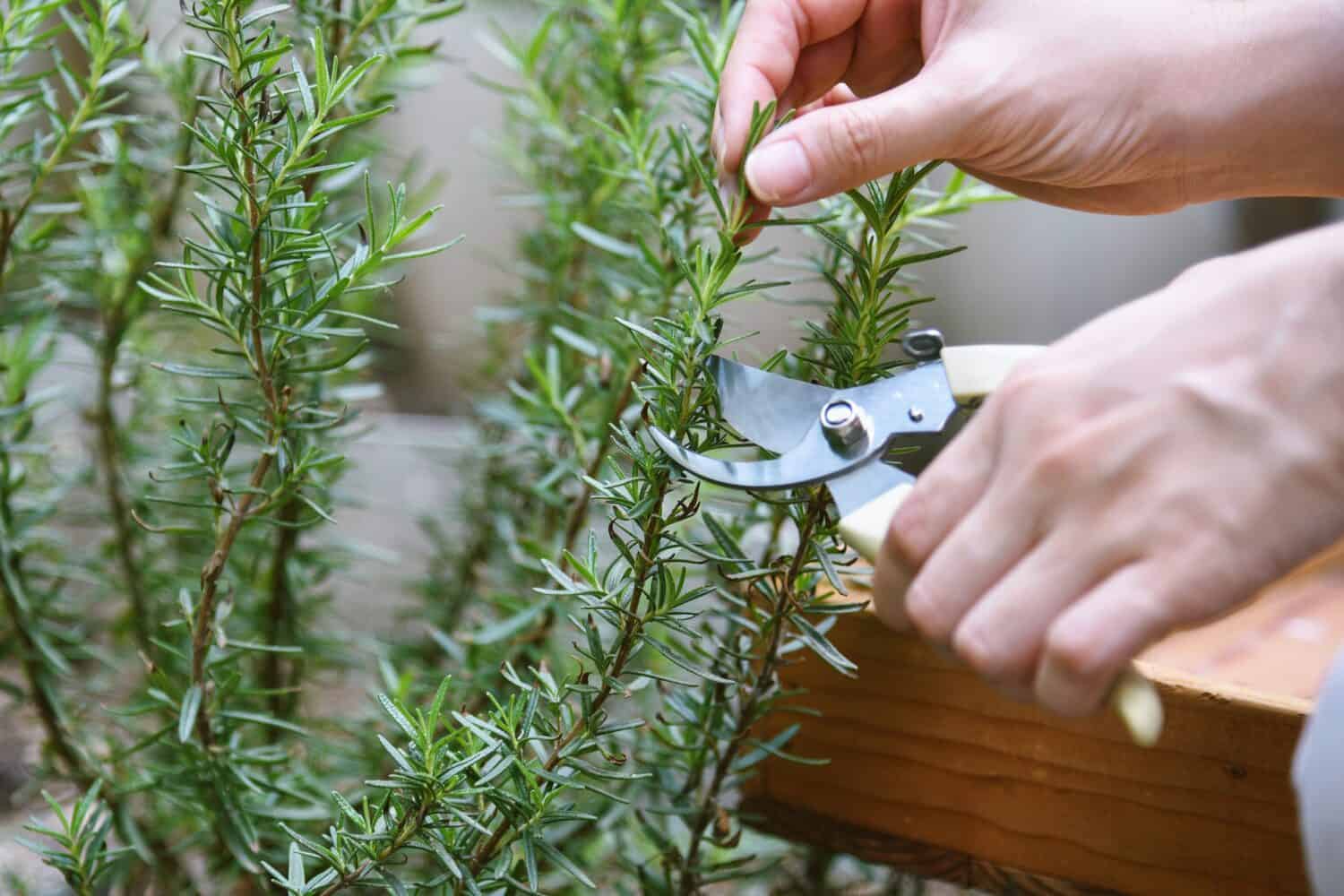
The seeds of rosemary plants take up to three weeks to germinate.
©ARTFULLY PHOTOGRAPHER/Shutterstock.com
Rosemary is a popular plant used in many dishes for its delicious smell. According to the University of Wisconsin-Madison, rosemary originates from the Mediterranean, Portugal, and northwestern Spain. It can grow nearly everywhere, though, and, is a great aromatic indoor plant. Rosemary seeds take a bit to sprout. They sprout in two to three weeks when the circumstances are right. The soil needs to be around 70°F to grow.
Thyme
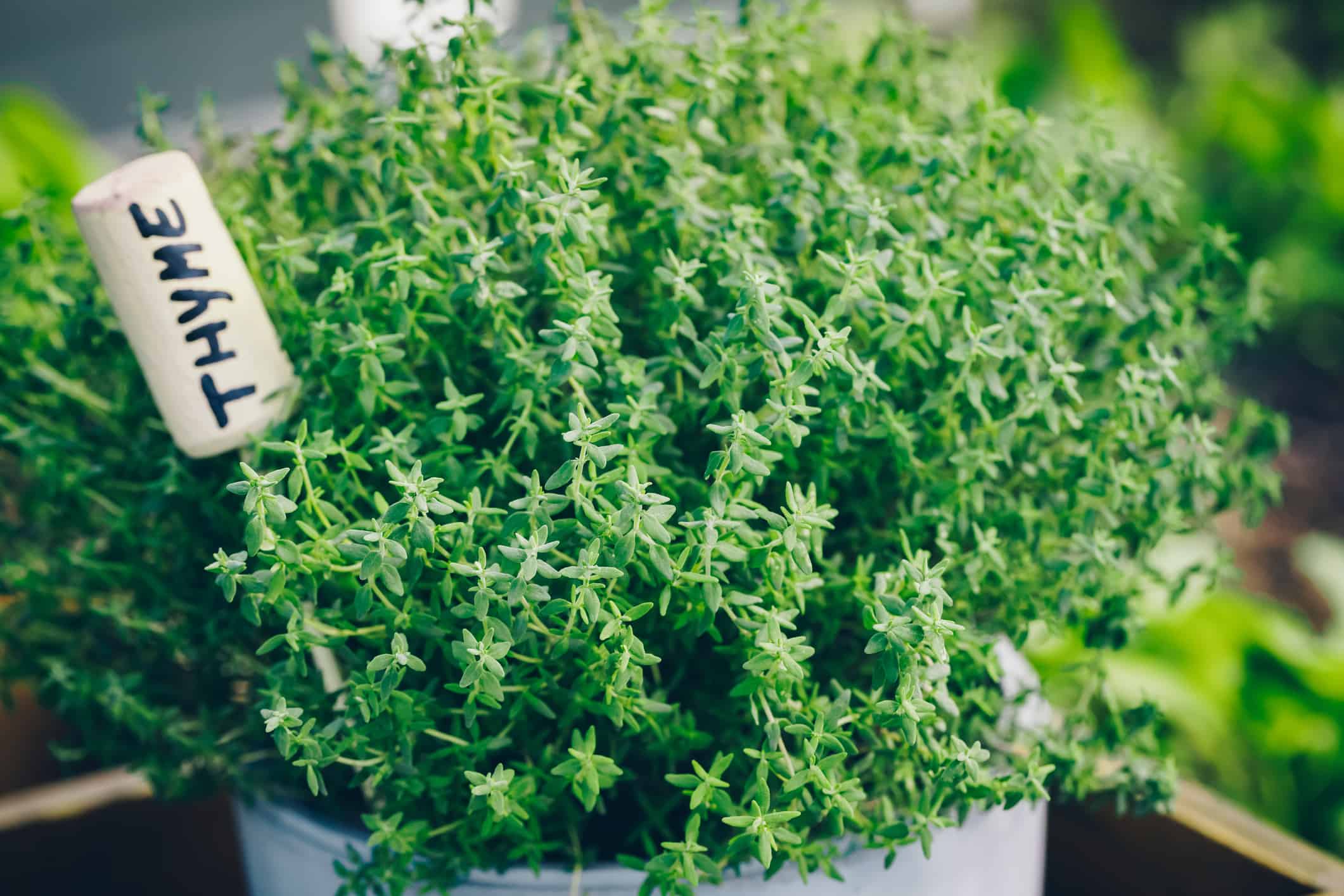
Thyme seeds may take up to a month to sprout.
©iStock.com/wmaster890
Continuing our list of the best plants to start indoors in January is thyme. However, if you’re looking to place your thyme plant outside, it’s best to start seeds in late spring or summer. But, if you live in a warm environment, you can grow thyme throughout the year. Thyme seeds are very small. You can spread them in a container or use a tweezer to place them neatly. If you spread them, you can just prune the seedlings as they grow. Patience is needed with this plant. Thyme seeds may take up to a month to sprout.
Chili Peppers
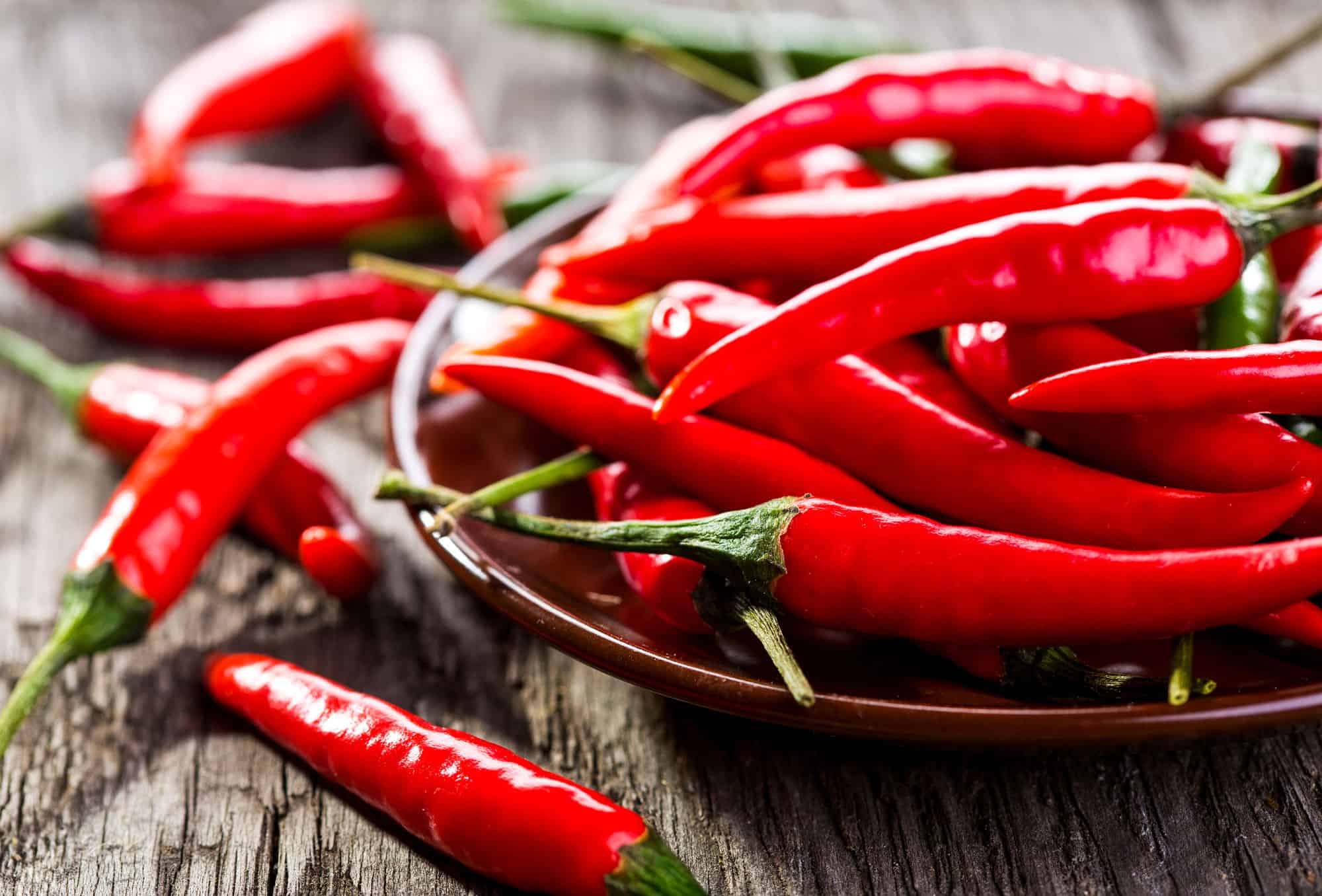
Chili peppers are great plants to start indoors in January.
©iStock.com/nitrub
Last but not least are chili peppers, or really any pepper species. Pepper seedlings can be grown indoors starting in January. The earlier you start, the larger the plant will be when you’re ready to transplant it outside. Chili peppers have a long growing season. The seeds take anywhere from 8 days to four weeks to sprout.
The photo featured at the top of this post is © lzf/Shutterstock.com
Thank you for reading! Have some feedback for us? Contact the AZ Animals editorial team.




